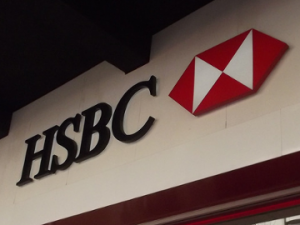
UK bank HSBC helped rich customers to funnel money in through its Swiss banking arm to avoid paying tax – but just one UK citizen on the list has been prosecuted for tax evasion.
The BBC investigative journalism programme Panorama has uncovered documents relating to 100,000 bank accounts held by wealthy people, including 7,000 Brits.
Although HMRC, which is responsible for collecting tax in the UK, confirmed that most were probably tax dodgers, only one has been brought to court.
However, HMRC claims that £135m in tax, fines and interest has been reclaimed from tax avoiders as a result of ongoing investigations.
According to the programme, HSBC, which is the UK’s largest bank, faces criminal charges in France, Belgium, Argentina and the US for facilitating tax evasion, but has not been prosecuted in the UK.
Responding to allegations relating to British citizens, the bank denied involvement.
“In some cases individuals took advantage of bank secrecy to hold undeclared accounts,” it told the Independent.
“This resulted in private banks, including HSBC’s Swiss private bank, having a number of clients that may not have been fully compliant with their applicable tax obligations. We acknowledge and are accountable for past compliance and control failures.
“We have taken significant steps over the past several years to implement reforms and exit clients who did not meet strict new HSBC standards. HSBC’s Swiss private bank has reduced its client base by almost 70% since 2007.”
But, speaking to the BBC, the Chair of the House of Commons’ Public Accounts Committee, Margaret Hodge said: “I just don’t think the tax authorities have been strong enough, assertive enough, brave enough, tough enough in securing for the British taxpayer the monies that are due.”
This marks the latest in a string of scandals at HSBC. Last year, it faced investigations for fixing forex rates and silver prices, with the former resulting in a wholesale clawback of banker bonuses. In October, it got into hot water with industry watchdogs for allegedly telling customers that they could not take out a business loan without opening a current account – a practice that has been illegal since 2002.







